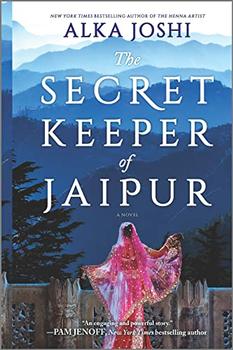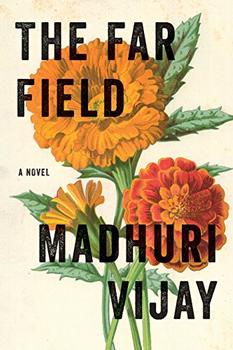Summary | Excerpt | Reading Guide | Reviews | Beyond the book | Read-Alikes | Genres & Themes | Author Bio

The Jaipur Trilogy #2
by Alka JoshiIn New York Times bestselling author Alka Joshi's intriguing new novel, henna artist Lakshmi arranges for her protégé, Malik, to intern at the Jaipur Palace in this tale rich in character, atmosphere, and lavish storytelling.
It's the spring of 1969, and Lakshmi, now married to Dr. Jay Kumar, directs the Healing Garden in Shimla. Malik has finished his private school education. At twenty, he has just met a young woman named Nimmi when he leaves to apprentice at the Facilities Office of the Jaipur Royal Palace. Their latest project: a state-of-the-art cinema.
Malik soon finds that not much has changed as he navigates the Pink City of his childhood. Power and money still move seamlessly among the wealthy class, and favors flow from Jaipur's Royal Palace, but only if certain secrets remain buried. When the cinema's balcony tragically collapses on opening night, blame is placed where it is convenient. But Malik suspects something far darker and sets out to uncover the truth. As a former street child, he always knew to keep his own counsel; it's a lesson that will serve him as he untangles a web of lies.
What made The Henna Artist so appealing was the strong, long-suffering Lakshmi, able to overcome all obstacles placed in her path with grace, fortitude and cleverness. I didn't like this version of Lakshmi as much — she's more reactionary and less self-reliant — and Nimmi often comes across as shrill and unnecessarily distrustful. The book is still certainly entertaining — it's just not at the level of The Henna Artist. The author provides enough background information (including a helpful "who's who" at the front of the book) that for the most part the novel can be read as a stand-alone work. Indeed, there's some argument to be made that one might enjoy it more without the inevitable comparisons to the earlier book. Tackling the series in order, though, will allow readers to understand the characters and their motivations better, and for that reason I'd recommend the latter approach...continued
Full Review
 (782 words)
(782 words)
(Reviewed by Kim Kovacs).
 Alka Joshi's novel The Secret Keeper of Jaipur takes place in the city of Jaipur, the capital of the Indian state of Rajasthan and home to over three million people.
Alka Joshi's novel The Secret Keeper of Jaipur takes place in the city of Jaipur, the capital of the Indian state of Rajasthan and home to over three million people.
Founded in 1727 by Maharaja Jai Singh II, Jaipur is said to be the first completely planned city in India. The Maharaja became aware that his current capital, Amber (now named Amer, about seven miles northwest of Jaipur) could no longer support the growing population, and so he decided to build a new city to serve as the seat of his government. Following the principles of Shilpa Shastras (ancient Indian sciences of design), he worked with renowned Bengali scholar Vidyadhar Bhattacharya to meticulously plan the city's layout, including parks, canals and market areas; ...

If you liked The Secret Keeper of Jaipur, try these:

by Madhuri Vijay
Published 2019
Gorgeously tactile and sweeping in historical and socio-political scope, Pushcart Prize-winner Madhuri Vijay's The Far Field follows a complicated flaneuse across the Indian subcontinent as she reckons with her past, her desires, and the tumultuous present.

by Neel Mukherjee
Published 2019
What happens when one attempts to exchange the life one is given for something better? Can we transform the possibilities we are born into?